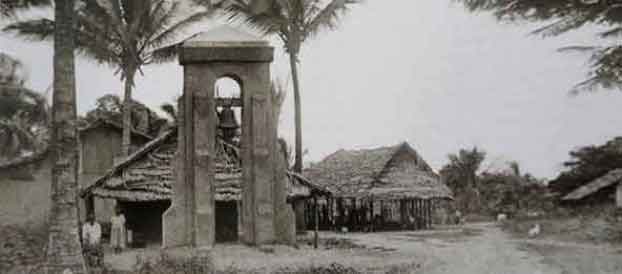Participating in the Divine Nature
2 Peter 1:4 ‘he has given us his very great and precious promises, so that through them you may participate in the divine nature’
The apostle Peter tells us to participate in the divine nature. When I think of participating in something divine I think of a lady in our home group called Linda who is an amazing cook. Whenever we meet she arrives with a bowl covered in tin foil. When the bible study is over we remove the cover and taste the contents. Often we go “Wow this is fantastic! This is divine!” As we dip our hands into the bowl we all participate in this ‘divine’ food.
God is literally divine, but not many people know that he is also tasty? Yes Psalm 34:8 says ‘Taste and see that the Lord is good.’ What does this mean? Well, look at the Son of God, he was tasty. The Roman soldiers who failed to arrest him said ‘No one ever spoke like this man.’ They found him interesting; tasty. Mary sat captivated at Jesus’ feet. She found him interesting; tasty. Crowds followed Jesus everywhere because he was tasty. Why was he tasty; because had the divine nature.
You and I can participate in the divine nature. And when the divine nature is part of us, we are tasty. People go “How come you’re always good to people?” “How come you’re always strong?” “How come you’re always enthusiastic?” And you can say, “Well, I participate in the divine nature.”
Peter tells us how to gain the divine nature. He says “Grace and peace be yours in abundance through the knowledge of God and of Jesus our Lord” (2). He says “His divine power has given us everything we need for a godly life through our knowledge of him” (3). Is grace and peace part of the divine nature? Yes! Is being godly about participating in the divine nature? Yes! Twice he tells us that participating in the divine nature begins with knowledge of God. Now he is not talking about head knowledge. In ancient Hebrew culture you only knew someone if you had personally experienced them. This is why Scripture often says things like “Adam knew his wife Eve, and she conceived and bore Cain… Cain knew his wife, and she conceived and bore Enoch” (Gen 4:1, 17). So Peter is saying we have grace, peace and all we need for a godly life through knowing God personally, experientially and intimately.
Peter then goes on to say “Add to your faith goodness; and to goodness, knowledge; and to knowledge, self-control; and to self-control, perseverance; and to perseverance, godliness; and to godliness, mutual affection; and to mutual affection, love” (5-7). It’s a little bit like a bride making herself beautiful for her groom on wedding day, she gets the right dress, adds the right hairstyle, adds the right eye shadow, adds the right lipstick, adds the right perfume, etc . Jesus is the groom and the church is the bride. Little by little we add what makes us beautiful until we are the perfect bride and can walk down the aisle to meet him.
Peter then says “If you possess these qualities in increasing measure, they will keep you from being ineffective and unproductive in your knowledge of our Lord Jesus Christ” (8). This is interesting; Peter’s line of thought forms a circle. Peter is now saying that possessing the divine nature will make us flourish in our intimate, experiential knowledge of Christ. I have found this to be true. Experiencing God leads me to godliness and godliness leads me to a deeper and more intimate appreciation of Christ. This is a cycle we need to maintain and even nurture.
Peter then says “Whoever does not have them (the divine characteristics) is nearsighted and blind, forgetting that they have been cleansed from their past sins” (9). In other words; the Christian who does not have the divine nature has forgotten who he is.
When I think of forgetting who I am, I always think of the Lion King film. Simba the lion cub loses his parents at an early age and grows up with a meerkat and a warthog. As he grows bigger he only knows how to behave as his friends and soon he is a full grown male lion that doesn’t know how to behave like a lion. One day while taking a drink he sees his reflection in the water, and it reminds him of what his father looked like. Suddenly the image in the water changes into his father’s face and his father says “Simba, remember who you are!” From that day on Simba begins the transition into behaving like a lion.
Christ has freed us from sin, but when we act as the sinners around us we have forgotten who we are. If a policeman acts as a crook he has forgotten who he is, if a man acts as a woman he has forgotten who he is, and if a Christian acts as a sinner he has forgotten who he is.
Peter ends this section of his writing saying “Therefore my brothers, be all the more eager to make your calling and election sure. For If you do these things (i.e. participate in the divine nature) you will never fall and you will receive a rich welcome into the eternal kingdom of our Lord and Saviour Jesus Christ” (10-11).
Peter is not saying here that you can only be sure of salvation if you behave in a godly way; we know we are saved by faith in what Jesus has done and not the works that we do. What Peter is saying is that sin creates obstacles to our faith, and if sin increases it can get the better of us and we could eventually lose our faith and deny Christ. But if we grow increasingly in the divine nature we will avoid such risks and find ourselves on an open highway to heaven; the possibility of turning away from Christ is lessened and our calling and election is made sure, and we will receive a rich welcome into the eternal kingdom.
The divine nature is attractive, it is tasty, it comes by a personal knowledge of Christ, it is ingrained in us little by little as we live it out, and it reinforces our faith walk. So let’s participate in the divine nature!







